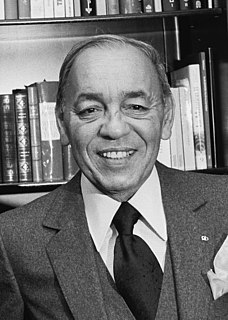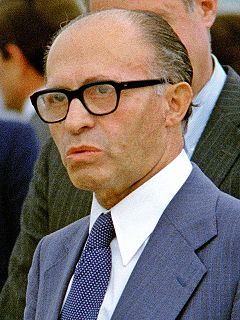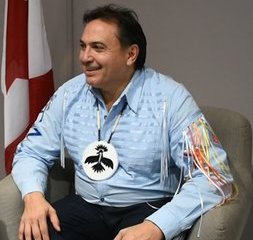A Quote by Vladimir Putin
At the request of my Japanese colleagues, in 2000 we revisited the possibility of signing a peace treaty based on the 1956 agreement.
Quote Topics
Related Quotes
The peace process we all aim for will not necessarily be a result of the mere signing of a treaty or agreement. It must become a matter of our everyday lives, so that peace settles and lasts and becomes supported by everybody. We therefore have to give peace all the required care and preserve it and promote it.
Back in 1956, we signed a treaty and surprisingly it was ratified both by the Supreme Soviet of the Soviet Union and the Japanese Parliament. But then Japan refused to implement it and after that the Soviet Union also, so to say, nullified all the agreements reached within the framework of the treaty.
In 2000 the then Prime Minister of Japan [Yoshir? Mori] asked me to return to this process, this conversation, these talks, and to do so, incidentally, on the basis of the 1956 declaration. I agreed. Since then we have conducted dialogue in this regard but I cannot say that our Japanese partners and friends have remained within the limits of the 1956 declaration.
If we act together along these lines, we will create conditions, the conditions for trust that Shinz? Abe speaks about, so as to take another step and conclude a peace treaty on certain terms. However, first, it is essential to cover this part of the way and then agree on the terms for signing a peace treaty. Both are challenging tasks but they are feasible.
You recalled the 1956 declaration, and this declaration established the rules that should be followed by both sides and that should be put into the foundation of a peace treaty. If you carefully read the text of this document, you will see that the declaration will take effect after we sign a peace treaty and the two islands [Kunashir and Shikotan] are transferred to Japan. It does not say on what terms they should be transferred and what side will exercise sovereignty over them.
To be treaty person means coexist in peace and with mutual respect. That's at the core of these treaties. They intended for us to mutually benefit from sharing the land and its resources. To us, this contract and agreement is a sacred covenant whose signing was witnessed by your God, we call him the Creator, and by your angels, we call them ancestors. You can't break that. We didn't just sign it one day. It took months to prepare, to plan, to seek guidance.
There are two major peace agreements. One is a comprehensive peace agreement that was consummated by the extremely beneficial intersession of the George Bush administration, who called on John Danforth, the former senator from Missouri, to negotiate a peace agreement after eight years during which President Clinton did not want to promote peace in the Mideast - I mean, in Sudan. And that's holding so far.
We do not seek an agreement with the [Palestinian] Arabs in order to secure the peace. Of course we regard peace as an essential thing. It is impossible to build up the country in a state of permanent warfare. But peace for us is a mean, and not an end. The end is the fulfillment of Zionism in its maximum scope. Only for this reason do we need peace, and do we need an agreement.
The United States stands by its friends. Israel is one of its friends Peace can be based only on agreement between the parties and agreement can be achieved only through negotiations between them. The United States will not impose the terms of peace. The United States is prepared to supply military equipment necessary to support the efforts of friendly governments, like Israel's, to defend the safety of their people.


























